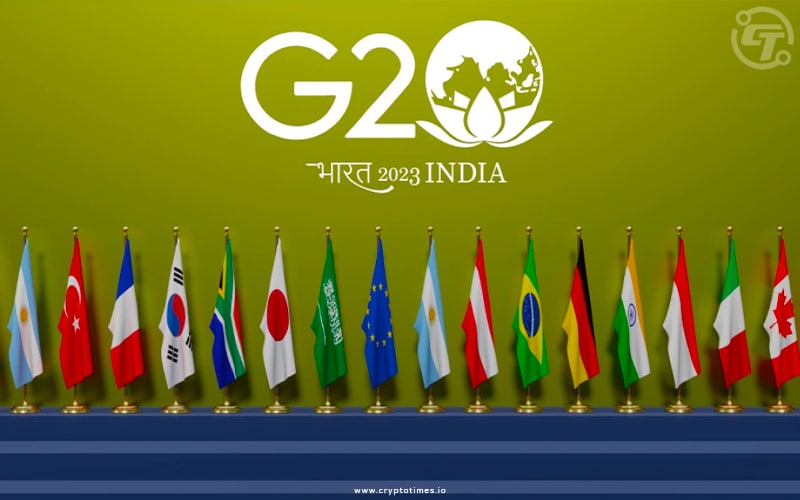The Finance Ministers and Central Bank Governors (FMCBG) from G20 have cooperated on a roadmap to handle the challenges and explore the opportunities associated with cryptocurrency assets such as Bitcoin and Ethereum.
The roadmap was proposed in a synthesis paper jointly prepared by the International Monetary Fund (IMF) and the Financial Stability Board (FSB).
The synthesis paper presents a detailed strategy for promoting worldwide rules and oversight for cryptocurrencies. It underscores the importance of dealing with the unique effects of these digital assets on emerging markets and developing economies (EMDEs).
The paper centers on five main aspects: creating policies, reaching out to countries beyond the G20, global collaboration, sharing information, and filling in gaps in data.
The G20 FMCBG communique, issued on Thursday after their fourth and final meeting under the Indian presidency in Marrakesh, Morocco, stated: “We adopt the roadmap proposed in the Synthesis Paper as a G20 Roadmap on Crypto Assets…We call for swift and coordinated implementation of the G20 Roadmap, including implementation of policy frameworks; outreach beyond G20 jurisdictions; global coordination, cooperation and information sharing; and addressing data gaps.”
The press release stated that the G20 FMCBG would want the International Monetary Fund (IMF) and Financial Stability Board (FSB) to regularly provide them with the implementation progress of the roadmap.
They also showed their approval for the continued efforts and worldwide acceptance of the rules established by the Financial Action Task Force (FATF) concerning cryptocurrencies.
The G20 Finance Ministers and Central Bank Governors issued a statement covering various important topics in addition to cryptocurrency assets. These included strengthening multilateral development banks (MDBs), managing global debt risks, improving cross-border payments, supporting a sustainable recovery from the COVID-19 pandemic, and advancing climate action.
These ministers have expressed their dedication to making substantial efforts in modernizing and reinforcing Multilateral Development Banks (MDBs) to tackle the global challenges of the 21st century. They are particularly focusing on meeting the developmental needs of lower and middle-income countries.
Furthermore, the plan emphasizes the significance of proactively putting into action the recommendations from the G20 Independent Review of MDBs’ Capital Adequacy Frameworks (CAFs) within the governance structures of these banks while ensuring their financial stability in the long term.
Also Read: IMF’s Gita Gopinath Decodes G20 Crypto Asset Regulation







